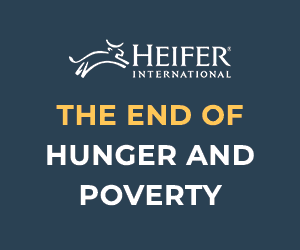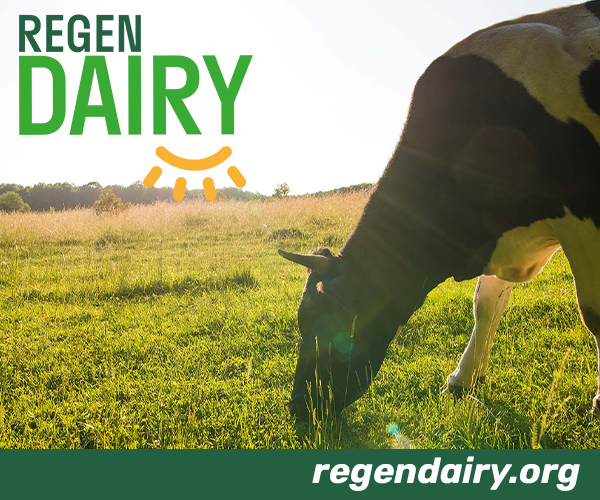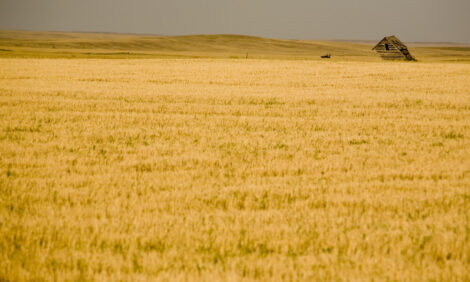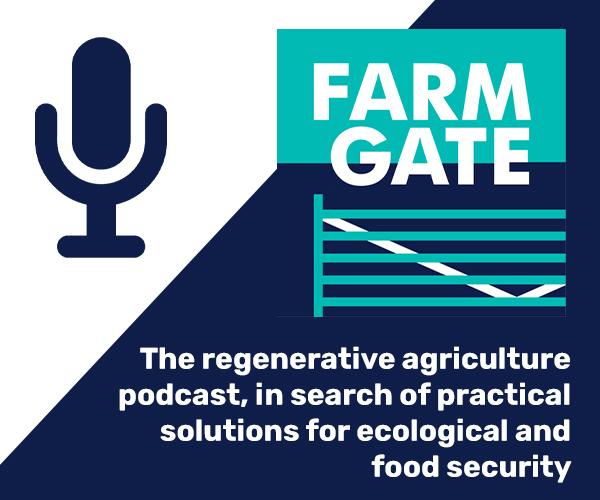



DDGS Feeding Trial Starts on Jordanian Dairy Farm
JORDAN - The US Grains Council (USGC) sees tremendous export potential of the US ethanol co-product, distillers dried grains with solubles (DDGS), to the Middle East.The USGC, in partnership with the Hammoudeh Dairy Farm in Amman, Jordan, began the long-awaited DDGS feeding trial utilising Hammoudeh Farm’s dairy sector.
“With tests just underway, the Hammoudeh group is already pursuing the cost of importing one or two holds of US DDGS, or 5,000 to 10,000 metric tons, along with US corn and other US commodities via bulk vessel shipment into Aqaba,” said Joe O’Brien, USGC regional director in the Middle East and Subcontinent, who helped organise the trial along with USGC Consultant Dr Alfred Miron. “While no DDGS has been imported thus far, the Council estimates Jordan’s domestic use could quickly surpass the 26,000 ton-per-year level.”
The Hammoudeh Dairy Farm has approximately 3,500 Holstein cows with eight groups of 192 cows being milked three times per day. The feeding trial is based on a treatment group of 192 cows fed a 10 per cent DDGS ration. The results will be measured against a control group and data collected on a daily basis. Data will be examined on a weekly basis to assess if changes are required. The anticipated outcome is that milk production will stay the same or perhaps increase slightly. Considerable cost savings are also anticipated, as the DDGS will more than offset the use of other, more costly ingredients.
The Council anticipates this trail will have significant regional impact as current Middle Eastern US DDGS users, Turkey and Israel, imported 520,000 tons in 2009 and 660,000 tons in 2008.
“US DDGS is a proven replacement to any number of other feed ingredients imported or procured locally, all of which are costly to producers trying to maintain input structures in the volatile markets they face today,” said Mr O’Brien.
“Hammoudeh satisfied and starting to import will give a big boost to Council DDGS marketing efforts in this region, especially to Saudi Arabia with the need to have the commodity included on the lucrative import feed ingredient subsidy list. Saudi Arabia already has some of the largest dairy farms in the world, none of which use DDGS currently due to the subsidy situation.”
In addition to the feeding trial, Hammoudeh is also planning to test DDGS at their poultry facility, and the Council will closely monitoring results. Once the trial is completed, a Field Day is planned at the Hammoudeh Farm.
“It will be very useful to showcase the use of DDGS in dairy farming throughout the Middle East and disseminate this news and results to animal feed importers in Jordan, Saudi Arabia, Syria, Iraq and elsewhere in the region,” said Mr O’Brien.
The University of Jordan, Department of Animal Production and Protection, also plans to conduct similar test runs at its experimental poultry farm facility. Results from these poultry tests will also form a part of the planned Field Day.
TheCattleSite News Desk











